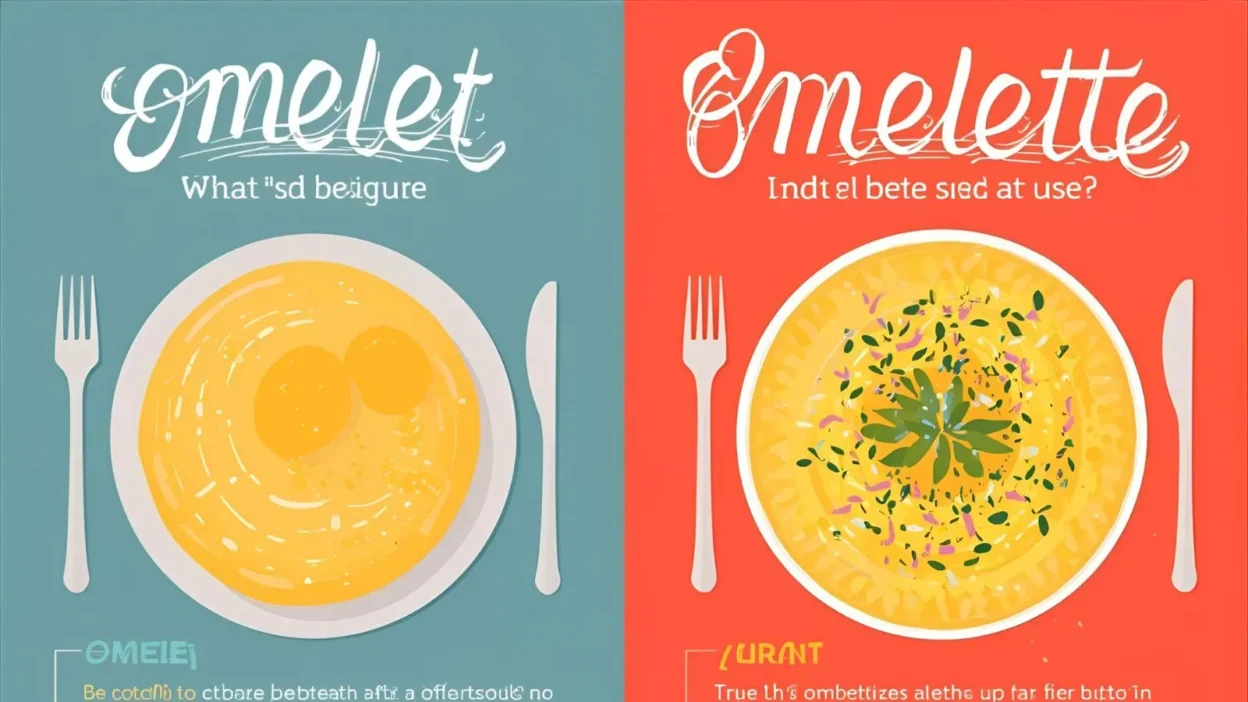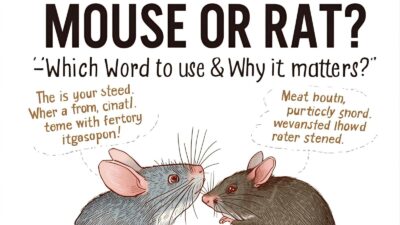When it comes to cooking, few dishes are as universally loved as the fluffy omelet—or is it omelette?
If you’ve ever paused while typing the word, you’re not alone.
Millions of people around the world search for “omelet or omelette” to figure out which spelling is correct. The good news: both are right.
The confusion stems from language differences between American and British English.
While “omelet” is preferred in the U.S., “omelette” is standard in the U.K. and many other countries.
This spelling difference can be tricky for writers, bloggers, chefs, and even students preparing assignments.
This article clears up that confusion with simple explanations, historical context, and practical advice.
Whether you’re writing a recipe, crafting a social media caption, or improving your English, by the end you’ll know exactly when to use omelet or omelette—and why it matters.
🥚 Omelet or Omelette – Quick Answer
The short answer:
- ✅ “Omelet” is the American English spelling.
- ✅ “Omelette” is the British English spelling.
Examples:
- 🇺🇸 American English: “I made a cheese omelet for breakfast.”
- 🇬🇧 British English: “I made a cheese omelette for breakfast.”
Both words refer to the same fluffy egg dish. The difference is only in spelling—not in meaning.
📜 The Origin of Omelet or Omelette
The word “omelet” comes from the French word “omelette.” It entered the English language in the 16th century. Over time, English speakers simplified spellings, especially in the U.S., to make words easier to write and pronounce.
- Original French: omelette
- Early English usage: omelet and omelette used interchangeably
- Modern usage: spelling differences became standardized between regions
The U.S. spelling “omelet” dropped the extra “te” to align with American spelling reforms. The British spelling “omelette” stayed closer to its French roots.
🇺🇸🇬🇧 British English vs American English Spelling
American English often uses simplified spellings, while British English keeps the original French or Latin-influenced spellings. This is why “omelet” is shorter in the U.S., while “omelette” remains longer in the U.K. and Commonwealth nations.
| Region | Preferred Spelling | Example Sentence |
| United States | Omelet | “I love a fluffy cheese omelet in the morning.” |
| United Kingdom | Omelette | “I ordered a ham omelette at the café.” |
| Australia, Canada, India | Omelette | “My favorite breakfast is a masala omelette.” |
| France | Omelette (original) | “L’omelette au fromage est délicieuse.” |
This pattern is similar to other words like “color” (US) vs “colour” (UK) or “flavor” vs “flavour.”
✍️ Which Spelling Should You Use?
Use the spelling that fits your audience:
- 🌎 Writing for American readers (blogs, recipes, or essays): use “omelet.”
- 🇬🇧 Writing for British or Commonwealth readers (UK, Canada, Australia, India): use “omelette.”
- 📰 Writing for an international audience: either is correct, but “omelette” may feel more familiar globally.
💡 Tip: If in doubt, match the spelling to the language of your platform or reader base.
⚠️ Common Mistakes with Omelet or Omelette
Here are frequent errors learners make:
| ❌ Wrong Usage | ✅ Correct Usage | Explanation |
| “I like omlet in the morning.” | “I like omelet in the morning.” | Spelling error (missing letters) |
| “She cooked a delicious omelets.” | “She cooked delicious omelets.” | No article needed with plural nouns |
| “Omelette is a American breakfast.” | “Omelet is an American breakfast.” | Use “an” before a vowel sound |
| “Omelet and omelette are different foods.” | “Omelet and omelette mean the same food.” | Only spelling differs, not the meaning |
| “I’m confuse about omelet spelling.” | “I’m confused about omelet spelling.” | Grammar correction |
Pro tip: Always proofread your text when switching between US and UK English.
🥄 Omelet or Omelette in Everyday Examples
The word shows up in many daily writing contexts. Here’s how it’s used:
In emails:
- “I’ll bring the ingredients for the cheese omelet tomorrow.”
In news headlines:
- “Celebrity chef reveals secret to the perfect omelette.”
On social media:
- “Sunday brunch isn’t complete without a fluffy omelette 🥚✨”
In formal writing:
- “The omelet is a traditional breakfast item found in many cuisines.”
Notice how the spelling matches the intended audience or publication style.
📊 Omelet or Omelette – Google Trends & Usage Data
Recent Google Trends data shows:
- 📈 “Omelet” is more popular in the United States.
- 🌍 “Omelette” is dominant in the United Kingdom, Canada, Australia, India, and Europe.
- 📉 Both spellings are recognized globally, but “omelette” has slightly broader international use.
| Country | Top Spelling | Search Popularity |
| USA | Omelet | 🔸 High |
| UK | Omelette | 🔸 Very High |
| Canada | Omelette | 🔸 High |
| Australia | Omelette | 🔸 High |
| India | Omelette | 🔸 High |
Understanding these trends helps writers tailor their content more effectively.
❓ FAQs
Q1: Is omelet and omelette the same thing?
Yes, they refer to the same egg dish. Only spelling differs.
Q2: Which spelling is more correct?
Both are correct. Use “omelet” in American English and “omelette” in British English.
Q3: Can I use both spellings in one text?
It’s best to stay consistent with one spelling per piece of writing.
Q4: Is omelette a French word?
Yes, it originates from French, which is why the British kept that spelling.
Q5: What’s the plural of omelet or omelette?
- Omelets (US)
- Omelettes (UK)
Q6: Is there any difference in recipe or dish?
No. The dish is the same; only spelling changes.
Q7: Which spelling should I use for global audiences?
“Omelette” is often more recognizable worldwide.
📝 Conclusion
Whether you write omelet or omelette, both words describe the same delicious, fluffy egg dish loved around the world. The difference lies in regional spelling preferences, not meaning.
If your readers are in the United States, use “omelet.” If they’re in the United Kingdom, Canada, Australia, or other Commonwealth countries, use “omelette.” For global audiences, either works, but “omelette” may feel more familiar internationally.
Remember to stay consistent, match your spelling to your audience, and proofread carefully. Mastering small differences like this makes your writing sound more polished and professional.
Discover More Articles:
- Chris’ or Chris’s Which Is Correct and When to Use Each? 2026
- “Mouse or Rat” Which Word to Use & Why It Matters? 2026
- Useable or Usable Which One Is Correct (And When to Use It)? 2026
- “Past Due or Passed Due” What’s the Right Term? 2026



